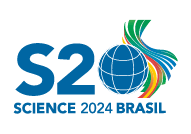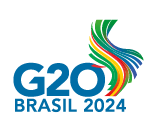PREVIOUS EDITIONS
2023
Place: Coimbatore, India
Date: July 21 & 22, 2023
Theme: Transformative Science for Sustainable Development
Site: https://s20indonesia.org/
Communiqué: Microsoft Word - S20_Communique_Signed (abc.org.br)
After three years of virtual meetings due to the Covid-19 pandemic, Science20 (S20) resumed its in-person activities with na opening meeting in 2023, under the rotating presidency of India. The meeting took place on January 30 and 31, in Puducherry, and addressed four main themes that would guide Science20 discussions in 2023: disruptive science for inclusive and sustainable development; universal health: cure and prevention of diseases; clean energy for a greener future; and connection science, society and culture. The S20 discussions in 2023 were based on three main topics: “Clean energy for a greener future”, “Universal holistic health” and “Connecting science, society and culture”. Each of the topics were discussed in specific meetings with representatives of the S20 Academies. At the end of this process, S20 promoted a meeting to finalize the document that summarized the debates in the three aspects and present recommendations from S20 under the main theme “Disruptive Science for Sustainable and Innovative Development”. The declaration was initially delivered to Indian Government and then to the heads of State and Government of member countries during the G20 Summit Meeting. On the 21st and 22nd of July, the S20 Summit was held in the city of Coimbatore. The objective of the meeting was to build a synthesis of the thematic meetings held previously and generate recommendations. The Coimbatore meeting crowned a process that lasted months, with a lively discussion between the Academies on fundamental issues for our societies.
“We, the Science Academies of the G20 member states and invitee countries, met in Coimbatore, India, on July 21-22, 2023, to recognize the need for transformative science for sustainable development in the spirit of Vasudhaiva Kutumbakam (One Earth, One Family, One Future). Science20 (S20) meetings, hosted by India during its G20 Presidency, were held under the theme “Transformative Science for Sustainable Development” and provided a platform for science academies to deliberate their sub-themes. These were: ‘Clean Energy for Greener Future’, ‘Universal and Holistic Health’, and 'Connecting Science with Society & Culture’.”
2022
Place: Jakarta, Indonesia
Date: September 20 & 21, 2022
Theme: Recover Together, Recover Stronger
Site: S20 Indonesia
Communiqué: 2022-S20-Statement-Indonesia.pdf (abc.org.br)
On July 27th and 28th, Science20 held the S20 2022 Pre-Summit, a hybrid meeting to discuss the latest draft of its annual statement “Recovering Together, Recovering Stronger”. The Summit Meeting was held on September 20th and 21st, where the declaration “Recovering Together, Recovering Stronger” was officially launched, with the main scientific recommendations for the leaders of the 20 largest economies in the world, that met in November in Indonesia. The document addresses issues such as building resilient health systems adapted to climate change; strengthening science and technology with multidisciplinary bases in preparing for health and environmental emergencies; strengthening the nexus between data, research and policy practice to find solutions to these challenges; and the post-covid-19 economic recovery on a sustainable basis.
“The Science20 (S20) recommends that the G20 governments tackle challenges in the priority issues that cover: building resilient health systems, enhancing adaptive capacity of health systems to climate change, bolstering multi-disciplinary science and technology for pandemic preparedness and climate change, guaranteeing that people are at the center, and strengthening the nexus between data-research-policypractice for climate change, pandemic preparedness and economic recovery.”
2021
Place: Rome, Italy
Date: September 28 & 29, 2021
Theme: Pandemic preparedness and the role of science
Communiqué: Layout 1 (abc.org.br)
The Virtual Meeting of Presidents of the Science20 Academies (S20) was held on July 15th. In the 2021 edition, under the presidency of Italy, the Accademia Nazionale dei Lincei was the host of Science20, having chosen as its theme “Preparedness for Pandemics and the Role of Science”. The document was officially delivered to G20 leaders during the Heads of State Summit in September. The presidents of the Academies of the G20 countries presented their considerations on how their organizations can contribute to the implementation of the proposals contained in the document, as well as potential collective actions that can be developed for this purpose. Science20 (S20) held its 2021 Summit on September 22nd and 23rd. The meeting marked the official delivery of the declaration “Preparedness for Pandemics and the Role of Science” to the Italian government. G20 governments were invited to organize a global system of access to epidemic data, build a network of infectious disease control centers and move towards an international treaty on the prevention of endemias.
“Based on consideration by the Scientific Academies of the G20 countries of how the experience of the response to COVID-19 might inform pandemic preparedness in the future, the governments of G20 are urged to undertake the following actions: 1. Promote the creation of a global network of surveillance, 2. Promote the distributed manufacture and delivery of diagnostics, drugs, vaccines, medical supplies and equipment, 3. Launch an Intergovernmental Convention that should pave the way to the formulation of an International Agreement on Pandemic Preparedness and Management, as recently proposed by more than 20 world leaders; provide a unique forum to assess the experience of COVID-19 for successes and failures in global cooperation; discuss the need for incentives and mechanisms to reinforce the International Health Regulations (2005) that must become a sharper instrument for action and more timely reporting of potential outbreaks”
2020
Place: King Abdullah Economic City, Saudi Arabia
Date: September 25 & 26, 2020
Theme: Science for Navigating Critical Transitions
Communiqué: S20-Report-Foresight-Science-For-Navigating-Critical-Transitions.pdf (abc.org.br)
In the 2020 edition, the S20 activities were coordinated by Saudi Arabia, under the theme “Future of Health: Navigating Critical Transitions”. Initially scheduled to be held in Riyadh, Saudi Arabia, the Science 20 (S20) meeting took place virtually on September 26 and mobilized invited researchers to collaborate with four task forces: Future of Health, Circular Economy, Digital Revolution and Connecting the Dots, the latter being responsible for interconnecting and synthesizing the previous topics. At the 15th G20 Summit, the Academies of Sciences presented the joint statement “Perspectives: Science for Navigating Critical Transitions” to the G20 presidency of Saudi Arabia.
“The primary conclusion of the 2020 Science 20 (S20), representing the National Academies of Science of G20 nations, is that issues of planet and people must be viewed holistically and with full appreciation of their complexity and interconnectedness. This lesson was learned from a systematic examination of emerging critical global transitions in health, environment, and technology, punctuated by a real-time example of a globally disruptive event, the COVID19 pandemic. This viral pandemic laid bare the health, economic, social, and educational vulnerabilities of societies and exposed the lack of foresight that resulted in ill-equipped responses on multiple fronts.”
2019
Place: Tokio, Japan
Date: March 6, 2019
Theme: Threats to Coastal and Marine Ecosystems
Site: 3D Printing: Reshaping Manufacturing (s20japan2019.org)
Communiqué: 2019-revised_S20Japan2019Statement.pdf (abc.org.br)
The 2019 meeting was held in Tokyo and addressed marine conservation as a highlight of the document signed by the Academies of Sciences of the G20 member countries, through the specialized dialogue forum, S20, in a meeting held at the headquarters of the Science Council of the G20. The S20 group's recommendations were delivered to Japanese Prime Minister Shinzō Abe and presented at the G20 annual meeting in Osaka in June..
“A healthy coastal and marine environment is essential for the ongoing sustainable development of human society. The ocean is a large absorber of atmospheric heat and carbon dioxide, and provides a vital buffer against anthropogenic climate change. The ocean contributes to human well-being in many ways, such as providing protein from fisheries, maintaining various natural cycles and is also a source of recreation and spiritual comfort. However, coastal and marine ecosystems are also facing serious threats. There are major environmental concerns on a global scale, which include acidification, deoxygenation, warming and its associated sea level rise as well as frequent extreme weather conditions. High nutrient inputs and inflow of pollutants such as heavy metals and organic toxic materials deteriorate coastal environments. Accumulation of plastic waste in the ocean originating from both land and ocean is an emerging problem. Damaging fishing practices, including Illegal, Unregulated and Unreported (IUU), affect coastal and marine ecosystems. The role of science in minimizing these impacts upon nature and society should not be understated.”
2018
Place: Rosario, Argentina
Date: July 24 & 25, 2018
Theme: Food and Nutrition Security: Improving Soils and Increasing Productivity
Communiqué: S20-Soils-Final-version-with-Exceutive-Summary-corrected-2.pdf (abc.org.br)
The 2018 Science 20 (S20) meeting took place on July 24th and 25th, in Rosario, Argentina, and was attended by more than 400 people. On the occasion, issues relating to food and nutritional security, water resources and energy were discussed. At the end of the event, the declaration was approved guiding governments in the formulation of public policies to guarantee actions against hunger and malnutrition. The book produced in collaboration between the InterAmerican Network of Academies of Sciences and the Academies of Sciences of the Americas was also released, which deals with food and nutritional security on the American continent.
“Soils, water and energy are essential resources for ensuring food security in the world. Human pressures on soil resources are reaching critical limits. Main threats are erosion, loss of organic carbon, nutrient imbalances, salinization and sodification, loss of biodiversity, contamination, acidification, compaction and urbanization. In this context, the S20 affinity group makes the following specific recommendations for the sustainable management of soils: 1. Promoting good soil governance. 2. Promoting soil knowledge in specific areas. 3. Increasing international scientific cooperation programs in the sustainable management of soil”
2017
Place: Halle, Germany
Date: March 22, 2017
Theme: Improving Global Health: Strategies and Tools to Combat Communicable and Non-Communicable Diseases
Site: Science20 Dialogue Forum (22.03.2017) (leopoldina.org)
Communiqué: Leo_Stellungnahme_G20_2017_c.indd (abc.org.br)
Science20 (S20) was created to act as the G20 engagement group for the area of science and technology. On March 22, 2017, representatives of Science Academies from the 20 countries with the largest economies in the world, which form the G-20, met at the Science 20 Dialogue Forum, in Halle, Germany, where they delivered to the German Chancellor, Angela Merkel, a document with recommendations for future global health management strategies. In the document, scientists address strategies for fighting infectious and non-infectious diseases that threaten individual well-being and harm health and the global economy.
“Communicable (infectious) and non-communicable (non-infectious) diseases seriously endanger individual wellbeing and global health, and threaten the global economy. Strong short- and long-term evidence-based strategies are needed. The G20 Academies of Sciences call for (1) the strengthening of healthcare and public health systems, (2) applying existing and emerging knowledge, (3) addressing the broader social and environmental determinants of health, (4) reducing serious risk factors for disease through education and promotion of healthy life styles, (5) ensuring access to health resources globally, and (6) enhancing and extending robust strategies for surveillance and information-sharing. Furthering research is a prerequisite for providing knowledge and new tools to meet these challenges”


